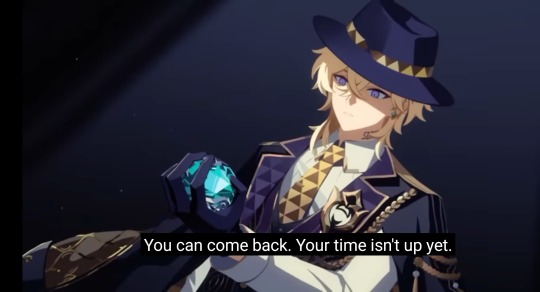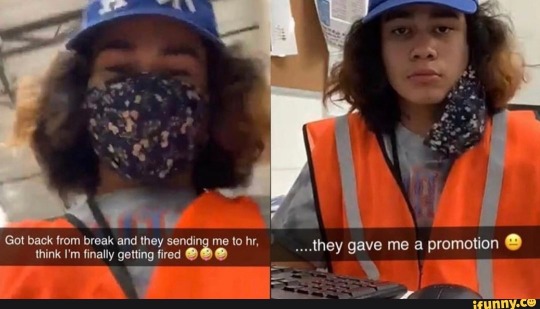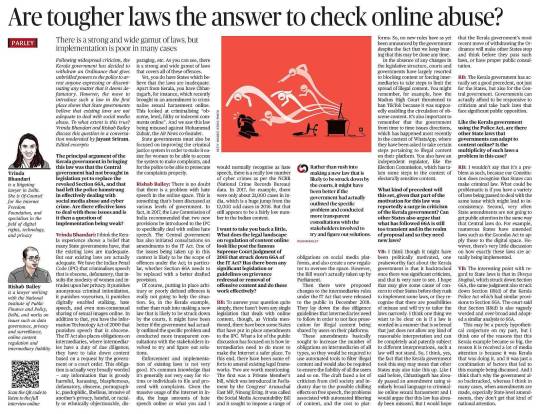#edit not that being still forced to work for the ipc is like. better. I mean it's better than being dead but I can't blame him
Explore tagged Tumblr posts
Text


#he looks so unenthusiastic I'm cryinggg girl you were going back on death row if they had fired you#chi.txt#aventurine tag#hsr#edit not that being still forced to work for the ipc is like. better. I mean it's better than being dead but I can't blame him#for looking so dejected he's literally back to square one. aventurine blow up the ipc I believe in you
82 notes
·
View notes
Text

Following widespread criticism, the Kerala government has decided to withdraw an Ordinance that gives unbridled powers to the police to arrest anyone expressing or disseminating any matter that it deems defamatory. However, the move to introduce such a law in the first place shows that State governments believe that existing laws are not adequate to deal with social media abuse. To what extent is this true? Vrinda Bhandari and Rishab Bailey discuss this question in a conversation moderated by Jayant Sriram. Edited excerpts:
The principal argument of the Kerala government in bringing this law was that the Central government had not brought in legislation yet to replace the revoked Section 66A, and that had left the police hamstrung in effectively dealing with social media abuse and cyber crime. Are there effective laws to deal with these issues and is it then a question of implementation being weak?
Vrinda Bhandari: I think the Kerala experience shows a belief that many State governments have, that the existing laws are inadequate. But our existing laws are actually adequate. We have the Indian Penal Code (IPC) that criminalises speech that is obscene, defamatory, that insults the modesty of women and intrudes upon her privacy. It punishes anonymous criminal intimidation, it punishes voyeurism, it punishes digitally enabled stalking, hate speech, and even non-consensual sharing of sexual images online. In addition to that, you have the Information Technology Act of 2000 that punishes speech that is obscene. The IT Act also places obligations on intermediaries, where intermediaries have a duty of due diligence; they have to take down content based on a request by the government or a court order. This obligation is actually very broadly worded — any information that is grossly harmful, harassing, blasphemous, defamatory, obscene, pornographic, paedophilic, libellous, invasive of another’s privacy, hateful, or racially or ethnically objectionable, disparaging, etc. As you can see, there is a strong and wide gamut of laws that covers all of these offences.
Yet, you do have States which believe that the laws are inadequate. Apart from Kerala, you have Chhattisgarh, for instance, which recently brought in an amendment to criminalise sexual harassment online. This looked at criminalising “obscene, lewd, filthy or indecent comments online”. And we saw this law being misused against Mohammad Zubair, the Alt News co-founder.
State governments must also be focused on improving the criminal justice system in order to make it easier for women to be able to access the system to make complaints, and for the police to be able to prosecute the complaints properly.
Rishab Bailey: There is no doubt that there is a problem with hate speech in the online space. This is something that’s been discussed at various levels of government. In fact, in 2017, the Law Commission of India recommended that two new provisions be introduced to the IPC to specifically deal with online hate speech. The Central government has also initiated consultations on amendments to the IT Act. One of the issues being taken up in this context is likely to be the scope of offences under the Act; in particular, whether Section 66A needs to be replaced with a better drafted provision.
Of course, putting in place arbitrary or poorly defined offences is really not going to help the situation. So, in the Kerala example, rather than rush into making a new law that is likely to be struck down by the courts, it might have been better if the government had actually outlined the specific problem and conducted more transparent consultations with the stakeholders involved to try and figure out solutions.
Enforcement and implementation of existing laws is not very good. It’s common knowledge that it’s generally not very easy for victims or individuals to file and proceed with complaints. Given the massive usage of the Internet in India, the huge amounts of hate speech online or what you and I would normally recognise as hate speech, there is a really low number of cyber crimes as per the NCRB (National Crime Records Bureau) data. In 2017, for example, there were only about 21,000 cases in India, which is a huge jump from the 12,000 odd cases in 2016. But that still appears to be a fairly low number in the Indian context.
I want to take you back a little. What does the legal landscape on regulation of content online look like post the famous Supreme Court judgment of 2015 that struck down 66A of the IT Act? Has there been any significant legislation or guidelines on grievance redressal or removal of offensive content and do these work effectively?
RB: To answer your question quite simply, there hasn’t been any single legislation that deals with online content, though, as Vrinda mentioned, there have been some States that have put in place amendments to the IPC. What a lot of the public discussion has focused on is how intermediaries need to do more to make the Internet a safer place. To this end, there have been some efforts to amend existing legal frameworks. Two are worth mentioning. The first was a Private Member’s bill, which was introduced in Parliament by the Congress’ Arunachal East MP, Ninong Ering. It was called the Social Media Accountability Bill and it sought to impose a range of obligations on social media platforms, and also create a new regulator to oversee the space. However, the Bill wasn’t actually taken up by Parliament.
Then there were proposed changes to the intermediaries rules under the IT Act that were released to the public in December 2018. They lay down the due diligence guidelines that intermediaries need to follow in order to not face prosecution for illegal content being shared by users on their platforms.
These amendments basically sought to increase the number of obligations on intermediaries of all types, so they would be required to use automated tools to filter illegal content and would also be required to ensure the liability of all the users and so on. The draft faced a lot of criticism from civil society and industry due to the possible chilling effects on free speech, the problems associated with automated filtering of content, and the cost to platforms. So, no new rules have as yet been announced by the government despite the fact that we keep hearing that this may be done any time.
In the absence of any changes in the legislative structure, courts and governments have largely resorted to blocking content or forcing intermediaries to take steps to limit the spread of illegal content. You might remember, for example, how the Madras High Court threatened to ban TikTok because it was supposedly enabling the circulation of obscene content. It’s also important to remember that the government from time to time issues directions, which has happened most recently in the context of WhatsApp, where they have been asked to take certain steps pertaining to illegal content on their platform. You also have an independent regulator, like the Election Commission, which has taken some steps in the context of electorally sensitive content.
What kind of precedent will this set, given that part of the motivation for this law was reportedly a surge in criticism of the Kerala government? Can other States also argue that what has followed 66A is still too transient and in the realm of proposal and so they need new laws?
VB: I think though it might have been politically motivated, one praiseworthy fact about the Kerala government is that it backtracked once there was significant criticism, and that is very rare to see. I hope that may give some cause of concern to other States before they rush to implement some laws, or they recognise that there are possibilities of misuse and will try to tailor the laws narrowly. I think one thing we want to be clear on is if a law is worded in a manner that is so broad that just does not allow any kind of reasonable interpretation and can be completely and patently subject to different interpretations, such a law will not stand. So, I think, yes, the fact that the Kerala government took this step may mean that other States may also take this up. Like I said before, Chhattisgarh has already passed an amendment using similarly broad language to criminalise online sexual harassment and I would argue that this law has already been misused. But I would hope that the Kerala government’s most recent move of withdrawing the Ordinance will make other States stop and think before they pass such laws, or have proper public consultation.
RB: The Kerala government has actually set a good precedent, not just for the States, but also for the Central government. Governments can actually afford to be responsive to criticism and take back laws that face significant public opposition.
Like the Kerala government using the Police Act, are there other State laws that governments can adapt to content online? Is the multiplicity of such laws a problem in this case?
RB: I wouldn’t say that it’s a problem as such, because our Constitution does recognise that States can make criminal law. What could be problematic is if you have a variety of laws being passed to deal with the same issue which might lead to inconsistency. Second, very often State amendments are not going to get public attention in the same way that Central laws do. For example, numerous States have amended laws such as the Goondas Act to apply these to the digital space. However, there’s very little discussion on how exactly these laws are actually being implemented.
VB: The interesting point with regard to State laws is that in Shreya Singhal, which struck down Section 66A, the same judgment also struck down Section 118(d) of the Kerala Police Act which had similar provisions to Section 66A. The court said that Section 118(d) is also vaguely worded and over-broad and adopted a similar analysis to 66A.
This may be a purely hypothetical conjecture on my part, but I think one of the reasons that this Kerala example became so big, the reason it is received a lot of media attention is because it was Kerala that was doing it, and it was just a combination of factors that led to this example being discussed. And I think that’s why the government also backtracked, whereas I think in many cases, when amendments are made, especially State-level amendments, they don’t get that kind of national attention.
0 notes